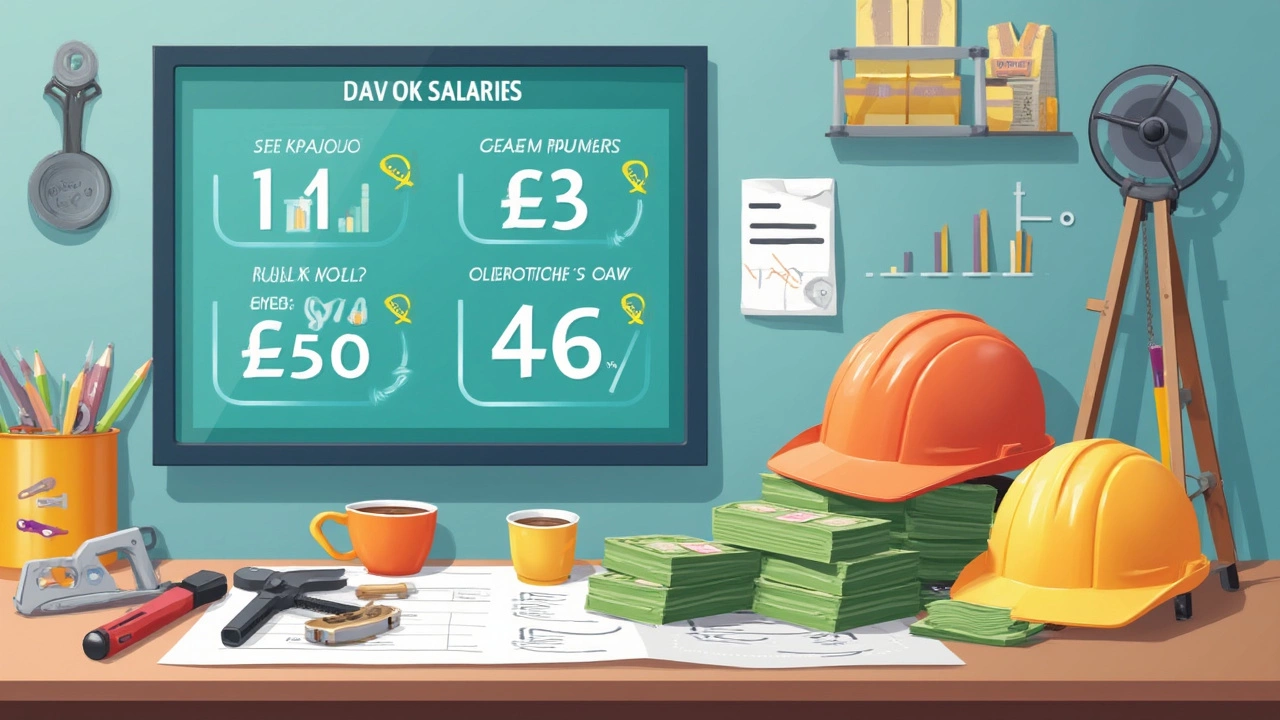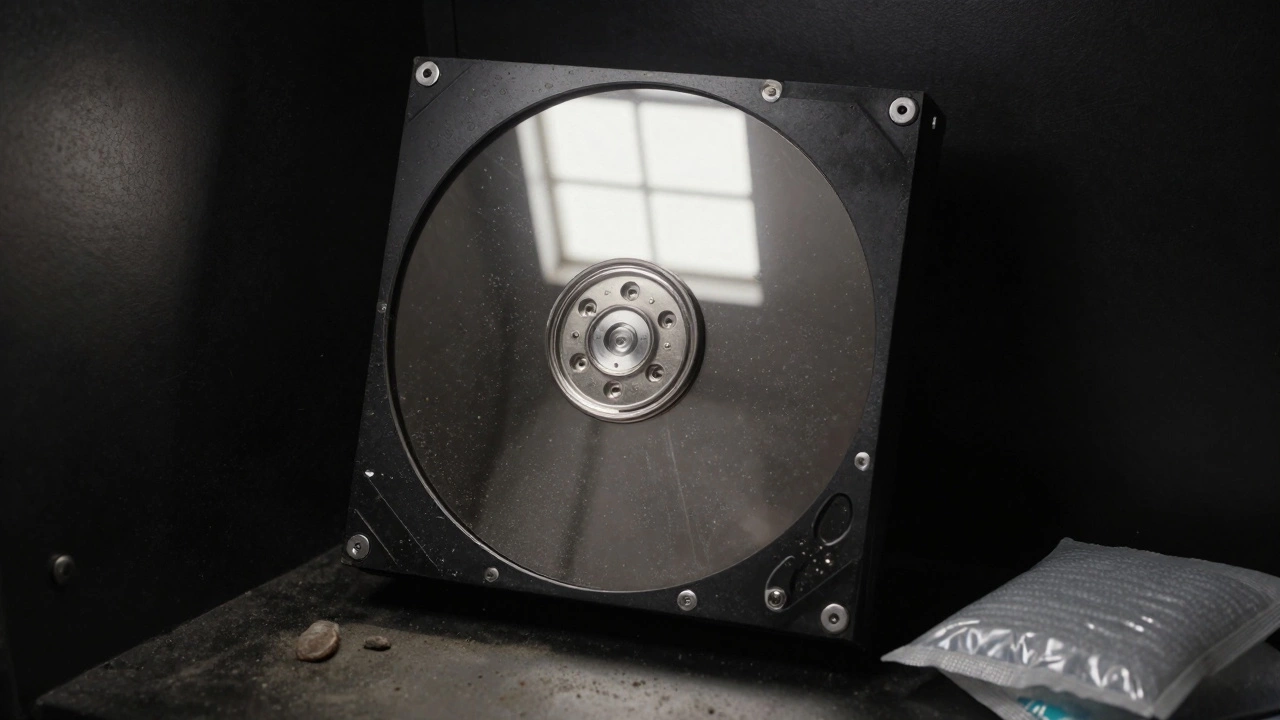Picking a trade in construction isn’t just about what you like to do—it’s straight up about what gets you paid. If you’re after the highest paycheck, you need to know which roles top the list right now, not just what sounded good ten years ago.
Electricians, plumbers, and HVAC techs used to be the talk of the town, but these days, some lesser-known trades are crushing the pay scale. Elevator installers and repair techs, for example, often make more than $90,000 a year, even without a college degree. That’s not an off-the-wall number; it shows up again and again in government and industry reports.
The catch? Not all high-paying trades have a ton of open spots, and some take years to break into. Still, there are smart ways to move up fast, boost your hourly rate, or find niches where the cash flows better. Stick around, and you'll see how the construction salary game really works—and what it takes to land the fattest checks.
- How Construction Trades Stack Up in Pay
- Top-Paying Construction Jobs Right Now
- What Skills and Training Bring the Biggest Bucks?
- Union vs. Non-Union: Does It Change Your Pay?
- Tips for Fast-Tracking Your Earnings
- Long-Term Outlook: Which Trades Have Staying Power?
How Construction Trades Stack Up in Pay
Not all construction jobs put the same amount of cash in your pocket. Some trades get you to six figures, while others have you scraping by. If you’re after the best return on your time and sweat, you need to know where the pay actually lands for different roles.
Here's a real look at what different trades brought in (on average) in 2024 in the U.S.:
| Trade | Average Pay |
|---|---|
| Elevator Installer/Repairer | $98,000 |
| Electrical Power-Line Installer | $84,000 |
| Plumber | $65,000 |
| Electrician | $62,000 |
| HVAC Technician | $55,000 |
| Carpenter | $54,000 |
Notice that elevator mechanics and power-line workers are at the top. The tough part? These gigs aren’t always the easiest to jump into. It can take four to five years as an apprentice before you start seeing those bigger paychecks, and the number of openings is smaller than in other trades.
But don’t count out more common jobs like plumber, electrician, or even HVAC tech—they consistently pay above the national average for skilled trades. While these roles might not always crush it in your first couple years, a more experienced worker or someone who runs their own business can sometimes make double these numbers.
Bit of advice—if you’re chasing cash, don’t just look at current pay. Factor in overtime, travel jobs, and where you live. Someone working on skyscrapers in New York or solar farms in Texas can make way more than the U.S. average. Where you work and how hard you hustle makes a huge difference in your take-home pay.
Top-Paying Construction Jobs Right Now
When you’re after serious cash in construction jobs, you’ve got to look at real numbers, not just what people say on job sites. Some trades always stand out, but the game is changing fast. Here’s where the top dollar is, based on well-known data from places like the U.S. Bureau of Labor Statistics and recent hiring trends.
- Elevator Installers and Repairers – These folks rake in an average of $98,000 a year, sometimes pushing past $120k if you count overtime or city gigs. Plus, demand’s steady because more buildings mean more elevators to fix.
- Construction Managers – Not a classic "tool belt" trade, but if you’ve got experience and can juggle big projects, you’ll see salaries from $95,000 and up, sometimes over $150k in busy cities. You usually need years of field work before you get the boss clipboard, though.
- Boilermakers – It’s tough work that’s often dirty and outdoors, but average pay hangs around $70,000–$85,000 a year. Jobs aren’t everywhere, but industrial hotspots pay a ton for skilled workers.
- Electricians – Still a strong choice if you’re looking for pay and steady gigs. Expect $65,000–$95,000 depending on your location and certifications. Master electricians and union pros pull in the top end.
- Plumbers and Pipefitters – These trades crack $60,000–$90,000 easy, even more for licensed professionals running their own crews or working on big commercial sites. Overtime can really stack it up.
- Crane Operators – Certified operators working on skyscrapers, bridges, or major builds often pocket $75,000–$100,000 a year. Training takes a bit, but the payoffs are real.
- HVAC Technicians – Heating, ventilation, and air conditioning pros land in the $55,000–$80,000 range. If you specialize in big buildings or green tech, you can jump to the higher side.
Here’s a quick look at average annual salaries for top trades (2024 data):
| Trade | Average Salary | Top Earners |
|---|---|---|
| Elevator Installer | $98,000 | $120,000+ |
| Construction Manager | $95,000 | $150,000+ |
| Boilermaker | $80,000 | $100,000 |
| Electrician | $75,000 | $95,000 |
| Plumber/Pipefitter | $72,000 | $90,000+ |
| Crane Operator | $85,000 | $100,000+ |
| HVAC Technician | $65,000 | $80,000 |
The big takeaway? If you want one of the highest paying trades, look at roles that need special training or deal with big money jobs. Certifications, location, and union status can push your numbers way up, so think bigger than entry-level apprenticeships if you want the big checks.
What Skills and Training Bring the Biggest Bucks?
If you’re after the highest pay in construction jobs, tech know-how, licenses, and specialty certificates are your tickets in. The days of just "learning as you go" are fading, especially if you want those top trade salaries. Employers now hunt for solid certifications and a proven skill set.
Take elevator installers and repairers—most of them go through a serious 4-year apprenticeship. You’ll need mechanical skills, electrical smarts, and the guts to work in small shafts. Their pay reflects the risk and knowledge: the Bureau of Labor Statistics pegs their average pay over $90,000 a year. But you can’t just walk in; expect training and a state license.
"Specialty certifications can make a $10,000-a-year difference," says John Ferrante, CEO of the Associated General Contractors of Massachusetts.
Crane operators, another big-money slot, need to pass both written and hands-on exams. The National Commission for the Certification of Crane Operators (NCCCO) is the gold standard, and many states require it by law. Not only does it open more job doors, but employers pay certified operators more because the risks (and insurance stakes) are so high.
- Master Electricians—Big leap in pay after passing the state test and racking up years of work as a journeyman.
- HVAC Techs—Earning EPA Section 608 certification boosts your hourly rate and lets you handle refrigerants.
- Welders—Specializing in underwater or industrial pipe welding? You’re likely to double the average welder’s salary after getting certified by the American Welding Society.
Want a quick visual? Check out how different certifications and training stack up for skilled trades:
| Trade | Basic Annual Pay | With Certification/Licensure |
|---|---|---|
| Electrician | $56,000 | $76,000+ (Master License) |
| HVAC Tech | $51,000 | $65,000+ (EPA Cert, Advanced Training) |
| Crane Operator | $62,000 | $80,000+ (NCCCO Certified) |
| Elevator Installer | $88,000 | $100,000+ (State License, Union Member) |
If you’re thinking about investing time in a training program, go for one tied to a respected industry group. Odds are, it’ll boost your pay way faster than just doing the minimum requirements. And don’t forget—while certificates open doors, real experience plus safety records and problem-solving skills work wonders for your highest paying trade ambitions.

Union vs. Non-Union: Does It Change Your Pay?
When it comes to construction jobs, the union vs. non-union debate can be the difference between a fat paycheck and scraping by paycheck to paycheck. Unions set pay rates through bargaining and usually lock in medical coverage, retirement plans, and guaranteed overtime. Non-union workers often have to negotiate pay solo and might not have those steady benefits.
Here's something that jumps out: union tradespeople often make 20% to 30% more on average than their non-union coworkers doing the same job. In 2024, union electricians were pulling in about $38 an hour compared to non-union rates hovering closer to $28 an hour. That's a real $2,000+ difference every month if you're working full-time.
| Trade | Union Avg. Hourly | Non-Union Avg. Hourly |
|---|---|---|
| Electrician | $38 | $28 |
| Plumber | $40 | $30 |
| HVAC Tech | $36 | $26 |
Unions also protect against sudden layoffs and push for steady work even when the economy’s bumpy. If you're starting out, joining a union can mean access to on-the-job training, apprenticeships, and clear steps up the pay ladder. But there’s a flip side—union jobs can be tougher to break into, and you might pay a few hundred bucks a year in union dues.
So, if you're chasing the highest salary in skilled trades, union shops tend to deliver bigger paychecks and better job security. But don’t write off non-union gigs entirely; some pay more in hot markets and offer faster promotion if you’re a real go-getter. Ask around, research your local scene, and weigh the pros and cons for your situation.
Tips for Fast-Tracking Your Earnings
If you want to race to the top of the pay scale in construction jobs, you’ve got to be strategic. It’s not about just showing up and waiting for a raise. You want that bigger check quicker? Here’s what actually works in the field.
- Pick a High-Paying Trade: Don’t just guess—look up hard numbers before you start. Elevator installers, industrial electricians, and pile driver operators regularly have the highest average wages. According to the U.S. Bureau of Labor Statistics, elevator installers earn a median of around $98,000 a year as of 2024.
- Certs and Licenses Open Doors: The fastest way to bump up your pay is to finish certifications. States require licenses for plumbers, electricians, and HVAC techs, and being licensed means you can take on bigger jobs or run your own show.
- Union Up: Unions in trades like electrical, plumbing, and sheet metal work often have better hourly rates, safer conditions, and set raises. If you can get in, you’ll usually out-earn non-union workers.
- Stay Mobile: Willing to move for a dollar? Folks who travel for high-skill gigs (think wind turbine techs or specialty welders) get per diem, travel pay, and higher base rates in boomtowns.
- Master a Niche: General carpenters are everywhere, but someone who specializes—like a commercial solar installer or a fire sprinkler tech—can ask for premium pay, especially in cities with hot construction markets.
Here’s a quick breakdown of median annual wages for some highest paying trade roles in 2024:
| Trade | Median Pay |
|---|---|
| Elevator Installer | $98,000 |
| Industrial Electrician | $76,000 |
| HVAC Technician | $59,000 |
| Plumber | $63,000 |
| Sheet Metal Worker | $58,000 |
Don’t forget: overtime is a huge factor in skilled trades. Jump on night shifts or urgent repair gigs and you’ll bump up your take-home way past just the base salary. Plus, always keep learning—every cert you add makes you harder to replace, and that means more leverage when it’s time to talk money.
Long-Term Outlook: Which Trades Have Staying Power?
Chasing big paychecks is smart, but nobody wants to jump into a job that dries up in five years. So, which construction jobs have real staying power?
The obvious winners are the trades tied to stuff people can’t live without—power, water, and heating. Electricians and plumbers are always needed. As homes get smarter and cities swap old wiring for new, there’s no sign these roles are fading. The Bureau of Labor Statistics says demand for electricians is growing about as fast as the average for all jobs in the U.S. Plumbers, pipefitters, and steamfitters have a similar outlook. That’s reliable, not flashy, but it means work steady as clockwork.
But who else makes the list? Elevator installers usually surprise people. With cities getting taller and all those elevators needing inspections and repairs, this job isn’t going anywhere. If anything, demand keeps ticking up—201,000 elevators in New York City alone, and each one needs regular pro attention.
Another sleeper hit? HVAC technicians. More extreme temps mean more folks installing or fixing air conditioning and heating. From smart thermostats to energy-efficient systems, these pros have more tech headaches to solve every year. If you like keeping up with gadgets and don’t mind the heat, HVAC can set you up for decades.
Here’s a quick look at growth predictions for key trades (2024-2034):
| Trade | Projected Growth (%) |
|---|---|
| Electricians | 6% |
| Plumbers | 5% |
| Elevator Installers/Repairers | 3% |
| HVAC Technicians | 6% |
The lesson: Trends come and go, but if you want that steady, high salary with room to grow, choose trades that are essential and tough to outsource. Even with new tech, AI, and other shake-ups, these roles keep the world moving—and that keeps you on a paycheck.






